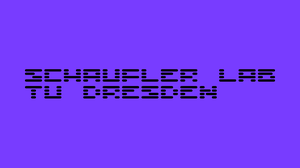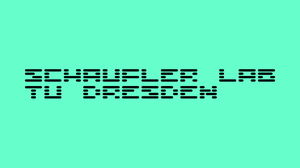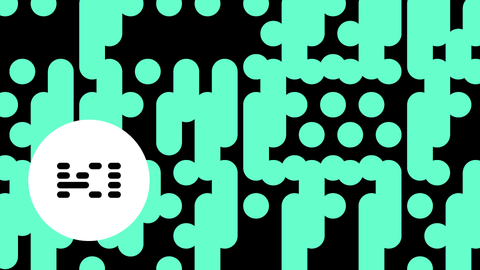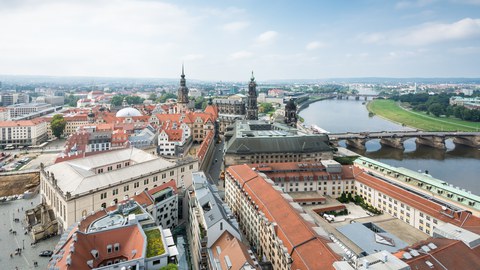The Schaufler Lab@TU Dresden
The Schaufler Lab@TU Dresden offers a vibrant and integrated platform for renowned artists and early-career researchers from the humanities and social sciences to examine the relationships between technology, art, science, and society. Founded in 2020 by TU Dresden and THE SCHAUFLER FOUNDATION, it started its second project phase in April 2024 with the guiding theme Data ↔ Worlds.
 © Happy Little Accidents
© Happy Little Accidents
The Schaufler Lab@TU Dresden
In the Schaufler Lab@TU Dresden, initiated jointly by THE SCHAUFLER FOUNDATION and TU Dresden, international artists and researchers from the humanities and social sciences examine the relations between technology, art, science, entrepreneurship and society.
The Lab consists of two pillars: the Schaufler Kolleg@TU Dresden, an interdisciplinary graduate school anchored at the TUD School of Humanities and Social Sciences, and the Schaufler Residency@TU Dresden, an artist-in-residency program based at the TUD Office for Academic Heritage, Scientific and Art Collections. The Lab thus brings (young) scientists together with international artists. All participants are committed to an explicitly transdisciplinary research methodology at the interface of science and art.
Interested in dialogues between art and science on questions pertaining to societal change, the PhD projects and artistic projects conducted at the Schaufler Lab engage an overarching guiding theme that changes with each funding phase.
The second project phase (2024-2027) Data ↔ Worlds explores the dynamic relationship between data and the social, technological, and ecological worlds they shape and are shaped by.
The Schaufler Lab takes the language and practice of experiment and laboratory seriously. As the historian of science Hans-Jörg Rheinberger has written “research systems are tinkered arrangements that are not set up for the purpose of repetitive operation but for the continuous re-emergence of unexpected events. Experimentation, as a machine for making the future, has to engender unexpected events.” Our goal is to engender such events by experimenting with place, intersectionality, and different mediums.
At the same time, the comprehensible discussion of scientific topics in exchange with a broad public is a central concern of the Schaufler Lab@TU Dresden. Experimental and participatory event formats reflect our expanded understanding of transfer and mediation.
STRUCTURE
The Schaufler Lab@TU Dresden is located within the TUD as a scientific institution at the School of Humanities and Social Sciences (GSW) and the Office for Academic Heritage, Scientific and Art Collections.
The board of the Lab consists of
- the spokespersons:
Moritz Ingwersen (Speaker Schaufler Kolleg, Junior Professorship in North American Literature with a Focus on Future Studies),
Orit Halpern (Co-Speaker Schaufler Kolleg, Chair of Digital Cultures),
Kirsten Vincenz (Speaker Schaufler Residency, Director of the Office for Academic Heritage, Scientific and Art Collections) - Birte Platow, Lutz Hagen, Kerstin Schankweiler, Katharina Kaesling, Sabine-Müller-Mall (main supervisors of the doctoral students)
- Gwendolin Kremer (representative of the residency)
- Özgün Eylül İşcen (Postdoc)
- Anke Woschech (Coordinator)
- Alexandra Lorch (representative of the doctoral students)
The Lab team and The Schaufler Foundation are supported by an advisory board that reviews the projects and concepts of the Schaufler Lab@TU Dresden.
Another advisory body is the selection committee of the residency.
REGULATIONS
The Council of the School of Humanities and Social Sciences ratified the Schaufler Lab@TU Dresden Regulations (PDF download after login; 1.05 MB) on June 5, 2024. The Rectorate of TU Dresden approved these regulations on June 25, 2024. The regulations govern the tasks, structure and membership as well as the qualification concept of the Schaufler Lab@TU Dresden.
TIME FRAME OF THE PROJECT
The Schaufler Lab@TU Dresden is designed for a total of nine years with three consecutive funding phases. Each funding phase is dedicated to a key topic.
FIRST PROJECT PHASE 2020-2024
The first project phase deals with the topic of "Artificial intelligence (AI) as a factor and consequence of social and cultural change". The corresponding partners were the Center for Tactile Internet with Human-in-the-Loop (CETI), the Center for Scalable Data Analytics and Artificial Intelligence Dresden/Leipzig (ScaDS.AI) and the Center for Explainable and Efficient AI Technologies (CEE AI) - the joint AI research center of TU Dresden and Fraunhofer Gesellschaft - and others.
SECOND PROJECT PHASE 2024-2027
In the summer semester of 2024, the Schaufler Lab@TU Dresden started its second funding phase (2024-2027) on the new guiding theme of Data↔Worlds. Socio-technical and cultural syntheses of new realities.




